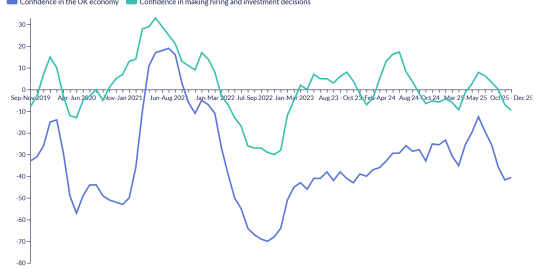Having a high impact CV can mean the difference between a contractor maintaining a steady stream of lucrative contracts or wondering why agents never seem to call, even when theyíve been sending out their CVs daily.
Agents wonít call if they are not reading what they want to see, believes Dave Chaplin, editor in chief and CEO of leading contractor website www.contractorcalculator.co.uk and author of the critically acclaimed Contractorsí Handbook.
ìContractors who create targeted, high-impact CVs tailored for each contract opportunity will get interviews,î he says. ìAnd interviews lead to contract offers, negotiations and ultimately paying contracts won. So without taking the time to produce the right CV for the right contract, you might as well not bother applying in the first place.î
How contractor CVs are used – the 10 second scan
Contractors have only about ten seconds to catch an agentís eye, before their CV is filed in the bin. In those ten seconds, the agent needs to be able to immediately spot from the CVís front page that the contractorís profile and skills exactly match the requirements of the contract. They must be ëperfectí for it.
CVs longer than four pages, that arenít clearly presented, donít have profiles and key, relevant skills on the front page and are written like an essay, without bullet points, wonít even get 10 seconds of the agentís time – they go straight in the bin.
ìYou need to remember that your experience is like a box of chocolates to the agent or client,î explains Chaplin. ìYou need to present the ones the agent or client wants rather than leaving them to have a rummage around to see if there is anything that takes their fancy.î
Writing a high impact contractorís CV
Fortunately, there is a semi-standard format for contractorsí CVs, so it is easy to produce a ëstandardí CV that can then be adapted for each contract opportunity. The main sections to include are:
ï Your profile, which should be a relevant four-line summary
ï Your relevant skills and expertise, about ten bullets points proving you are qualified for the contract
ï Your relevant achievements, which are measurable benefits you provided to other clients
ï Previous clients to show what youíve done successfully for other relevant clients using your relevant skills.
ìThe word ërelevantí crops up in each of the bullet points to emphasise that every time you send out your CV it must be directly targeted at the contract you are hoping to win,î says Chaplin.
You should include a sentence or two about your top-line academic qualifications, but if you have a significant number of projects or years of work experience behind you, your qualifications, unless they are the latest professional ones, become increasingly irrelevant.
Remember too, says Chaplin, that hobbies can get you in the door: ìAn agent told me that the project manager recruiting for a project was really into cooking, and I got taught to cook great desserts by my mother. So I put ëpastry chefí on my CV as a hobby and five minutes into the interview I was asked, ëSo, whatís your favourite pudding?í. It was a great ice-breaker, I won the contract and the rest is history!î
Targeting CVs – you can have more than one
As Chaplin repeatedly emphasises, the key word to bear in mind when preparing your CV is ërelevantí. ìRemember the chocolate box analogy and only include information that will make you look ideal for the specific contract you want to win,î he says. ìAnything else will only irritate rather than impress the agent or client, who are looking for just the right contractor.î
The high-impact contractor CV should be tailored to the specific opportunity, and this means being prepared to change the profile, even if only slightly, each time the CV is sent out. Chaplin also recommends having a bank of bullet points for skills, achievements and experience, so that these can be slotted in where required.
ìContractors are not recruited as employees are, where clients and agents will forgive some gaps in knowledge or experience. Instead, contractors must have the skills in place to hit the ground running – thatís what theyíre being paid for,î says Chaplin. ìSo there is no mileage saying or implying, ëIíd like to learn xyz and grow into the positioní. Clients donít want to invest in training you; they want the readymade article, ready to run.î
Your high impact CV is your sales brochure
Contractors are selling a product – themselves – and their high-impact CV is simply the sales brochure they are using to sell themselves to an agent and ultimately the end-user client.
ìOnce you understand that youíre not applying for a full-time permanent job and are selling yourself to win a contract, then creating targeted, tailored and high-impact CVs will become second nature, and so will winning high value contracts,î says Chaplin.
ìFortunately, 21st Century contractors have resources and guidance on how to create high-impact CVs that simply didnít exist when I started out as a contractor.î Websites like www.contractorcalculator.co.uk and books like the Contractorsí Handbook cover contractor CV writing in detail, with step-by-step guides on how to create each section and examples.
Chaplin concludes: ìThis means that with just a small investment in time, new contractors can hit the ground running and experienced contractors can up their game.î
Internet references
www.contractorshandbook.co.uk
High impact contractor CVs keep contractors in work

Having a high impact CV can mean the difference between a contractor maintaining a steady stream of lucrative contracts or wondering why agents never seem to call, even when theyíve been sending out their CVs daily




